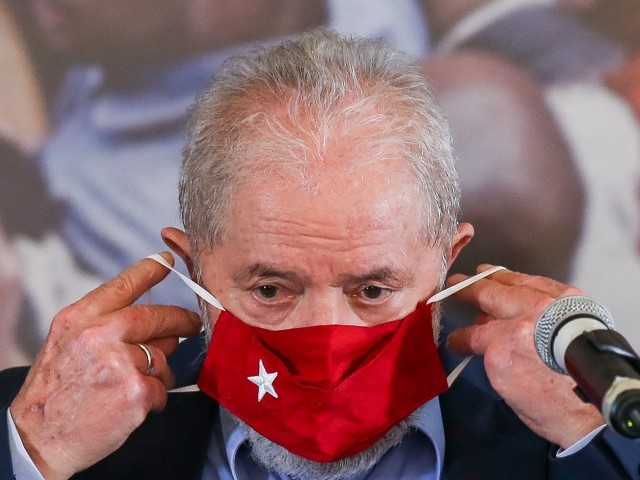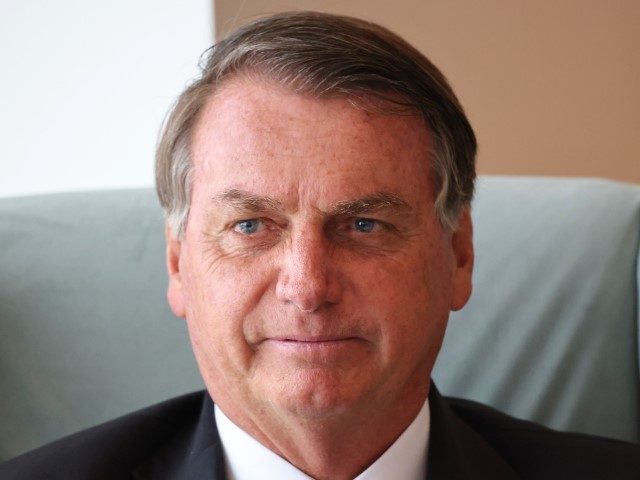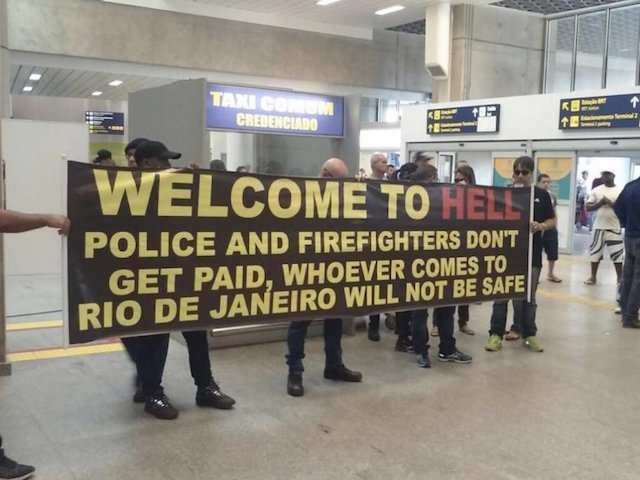The state of Rio de Janeiro, Brazil, documented an 18-percent drop in homicides in the first three months of 2022 compared to the same timeframe a year ago, reports revealed Wednesday, resulting in the lowest numbers since 1991.
Rio de Janeiro’s Public Security Institute (ISP), the local government agency monitoring these statistics, had most recently documented a record-low homicide rate the last time it published its statistics, in January. While dwindling crime rates in one of South America’s most violent metropolitan areas had initially been attributed in part to Chinese coronavirus social distancing restrictions, experts noted that, by January, many of these measures were no longer in place, suggesting other factors in play.
Conservative President Jair Bolsonaro won the 2018 election largely on a promise to combat the nation’s skyrocketing violent crime rates, particularly homicide and rape. In his current reelection campaign, the president is emphasizing granting police more power to fight criminals and expanding gun rights so that citizens, particularly those in rural areas far from police stations, can more easily protect their families.
The Rio de Janeiro region documented 760 homicides between January and March 2022, the Argentine news portal Infobae observed on Wednesday, an 18-percent drop from the same time period in 2021 and the lowest rate since 1991.
The number signifies a 23-percent drop in deaths when including all violent deaths – not just those ruled homicides, but individuals killed during another crime, like robbery, or “deaths due to police agent intervention.” The total number of violent deaths documented was 1,099.
“Official statistics show that, while in 2018, 4,950 homicides were registered, the rate fell to 4,004 in 2019, to 3,544 in 2020, and to 3,245 in 2021,” Infobae observed. “The homicide rate record in Rio occurred in 1995 with 8,438 cases, according to the ISP.” Bolsonaro was elected president in October 2018.
In comparison, the state with the highest number of homicides in America, California, documented 2,368 deaths in 2020, the latest year for which the U.S. Centers for Disease Control (CDC) have published homicide mortality rates.
The Brazilian ISP reported in January that Rio de Janeiro ended 2021 with the lowest number of “intentional homicides” – not including killings considered secondary to the commission of other crimes – since 1991, as well. The ISP documented 3,245 murders in Rio de Janeiro in all of 2021.
The Globo Networks’ G1 news outlet observed in reporting the numbers that they did not include deaths at the hands of police officers, which increased between 2020 and 2021.
“The record for homicides, according to ISP records, was in 1995, with 8,438 cases. The drop from 1995 to 2021 is 61 percent,” G1 reported.
Law enforcement experts told G1 that, while the pandemic and statewide limitations of civilian movement had impacted the crime rate, by the end of 2021, this was not the primary factor in the drop in homicides.
“The reduction in people circulating would make not just intentional homicide rates, but other urban crimes like commuter theft, robbery, and car theft, fall,” public safety expert Paulo Storani told G1 in January. “The indicator would be post-pandemic, when the state returns to normal. We are going that way and what is surprising is the drop in the [crimes] with this fact. We have to analyze the reason for that.”
Bolsonaro has, as president, greatly empowered the federal police and publicly vouched for their right to self-defense in doing their jobs, prompting international left-wing outrage. The president has enjoyed particularly high support among law enforcement, also stirring “concerns” among his political enemies.
As a candidate, Bolsonaro is placing gun rights and police empowerment against crime at the heart of his campaign.
“For a long time, Brazil has suffered at the hands of crime, many times reflected in those who were elected to combat it, but ended up absorbing or even legitimizing it,” Bolsonaro wrote on Twitter on Wednesday in response to a killing resulting from an attempting mugging caught on video. “We have been working day and night to change this situation and restore the security taken away from Brazilians.”
“Despite having reached the lowest rate of violence in history, there is a long way to go,” Bolsonaro continued. “There are many difficulties we face. Unfortunately, our constitution doesn’t even allow for life in prison [life sentences], for example.”
Bolsonaro is one of the few political leaders in Latin America to support civilian gun rights. Unlike in the United States, where the Second Amendment guarantees the right to bear arms, Latin American states typically have no tradition of seeing the private possession of guns as a fundamental right.
The president emphasized the importance of gun rights in a speech this week.
“Brazil is a Christian country. We are against abortion. We are against gender ideology. We defend the family. We defend private property. We want firearms for good citizens,” Bolsonaro said. “All you good citizens know that firearms, especially in the most remote locations, are a guarantee for your lives. And for all of us here, don’t forget: an armed people will never be enslaved.”
Rio de Janeiro’s violent crime crisis, in particular, became an international issue in 2016, when the city hosted the Summer Olympics. Multiple Olympic athletes suffered robberies and other criminal attacks, while police went on strike to protest the corrupt socialist government not paying them.
“Welcome to Hell,” a protest banner police unfurled to welcome Olympic tourists in Rio de Janeiro’s international airport in June 2016 read. “Police and firefighters don’t get paid, whoever comes to Rio de Janeiro will not be safe.”
That year also saw a major escalation in the number of rapes documented in the city. In one particularly brutal incident, 33 men and boys gang-raped a 16-year-old girl, recorded it, and posted graphic videos on social media. At the time, the newspaper O Globo estimated that someone was raped in Rio de Janeiro every two hours.
A year later, police went on strike completely, protesting not receiving their wages, resulting in schools in neighboring Espiritu Santo state shutting down to protect students from the massive resulting crime wave. The strike triggered a 650-percent increase in homicides in three days and a 1000-percent increase in both homicide and property crime combined, according to the Civil Police Union.

Luiz Inacio Lula da Silva, Brazil’s former president, puts on his face mask during a press conference after convictions against him were annulled at the Sindicato dos Metalurgicos do ABC on March 10, 2021 in Sao Bernardo do Campo, Brazil. Minister Edson Fachin, of the Federal Supreme Court, annulled on Monday the criminal convictions against former leftist President Luiz Inacio Lula da Silva on the grounds that the city of Curitiba court did not have the authority to try him for corruption charges and he must be retried in federal courts in the capital, Brasilia. The decision means Lula regains his political rights and would be eligible to run for office in 2022.
Attracting costly international sporting events – at the expense of limiting police salaries and sometimes not paying them at all – was a major initiative under socialist former President Luiz Inácio Lula da Silva, currently the frontrunner against Bolsonaro in the 2022 race. Lula himself is a convicted felon, sentenced to 25 years in prison in 2019 for using government funds to buy a luxury beachfront property. The nation’s highest court, the Supreme Federal Tribunal (STF), overturned the sentence, allowing him to run for president this year.
Follow Frances Martel on Facebook and Twitter.


COMMENTS
Please let us know if you're having issues with commenting.